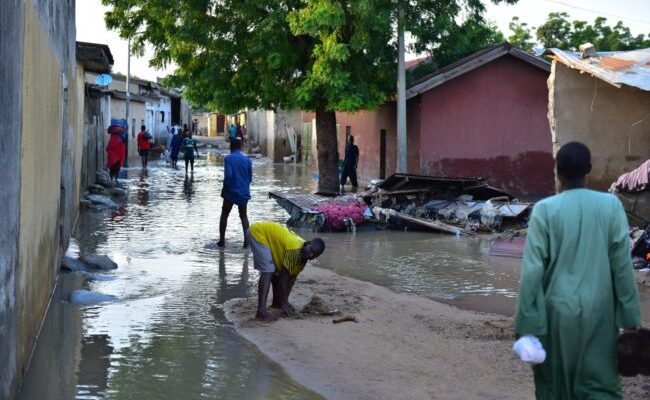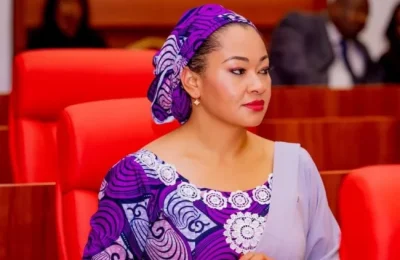The World Health Organization (WHO) is providing emergency health assistance to Nigeria following severe flooding that has affected over 610,000 people, displaced 225,000, and caused 201 deaths.
The floods have also damaged infrastructure, raised the risk of food insecurity, and increased the spread of infectious diseases.
The flooding, which has so far largely been confined to the north of the country, could worsen in the coming weeks as flood waters flow downwards to central and southern states. This has prompted WHO to step up its support to the Nigerian authorities to provide emergency health assistance to those affected.

According to a statement posted on its website on Monday, WHO has deployed four mobile health teams comprising 20 medical personnel with essential drugs and medical supplies to the affected areas in Maiduguri, the capital of the country’s north-eastern Borno state.
The teams are providing treatment for minor ailments, routine immunization, antenatal and postnatal services as well as mental health care and coordinating medical referrals to larger hospitals.
Another WHO team of 50 frontline volunteers has been deployed to carry out community active case searches for water-borne and vaccine-preventable diseases in camps for the displaced. This is in addition to the support being provided by the Nigerian federal government, through the National Emergency Management Agency (NEMA), which has mounted a multisectoral emergency response in collaboration with local health authorities in affected states, as well as WHO and other partners.
The Ministry of Health has also activated emergency response call centers to provide assistance to those affected by the floods. In Jigawa, one of the worst-hit states, authorities have converted public buildings and schools into shelters for the displaced and distributed food rations, blankets, and mosquito nets.

WHO has provided Jigawa with around $45,000 of essential drugs and medical supplies, including rapid diagnostic kits for malaria and anti-malarial medication. The Organization is in the process of dispatching similar donations to two other affected states, Bauchi and Kogi.
“The flooding in Nigeria poses a severe public health challenge, necessitating a swift, agile, and comprehensive response,” says Dr. Walter Kazadi Mulombo, WHO Representative in Nigeria. “Close collaboration between government and partners such as WHO is critical to such efforts.”
ALSO READ THESE TOP STORIES FROM NIGERIAN TRIBUNE
NNPCL selling Dangote petrol more than imported ones doesn’t make sense — IPMAN







